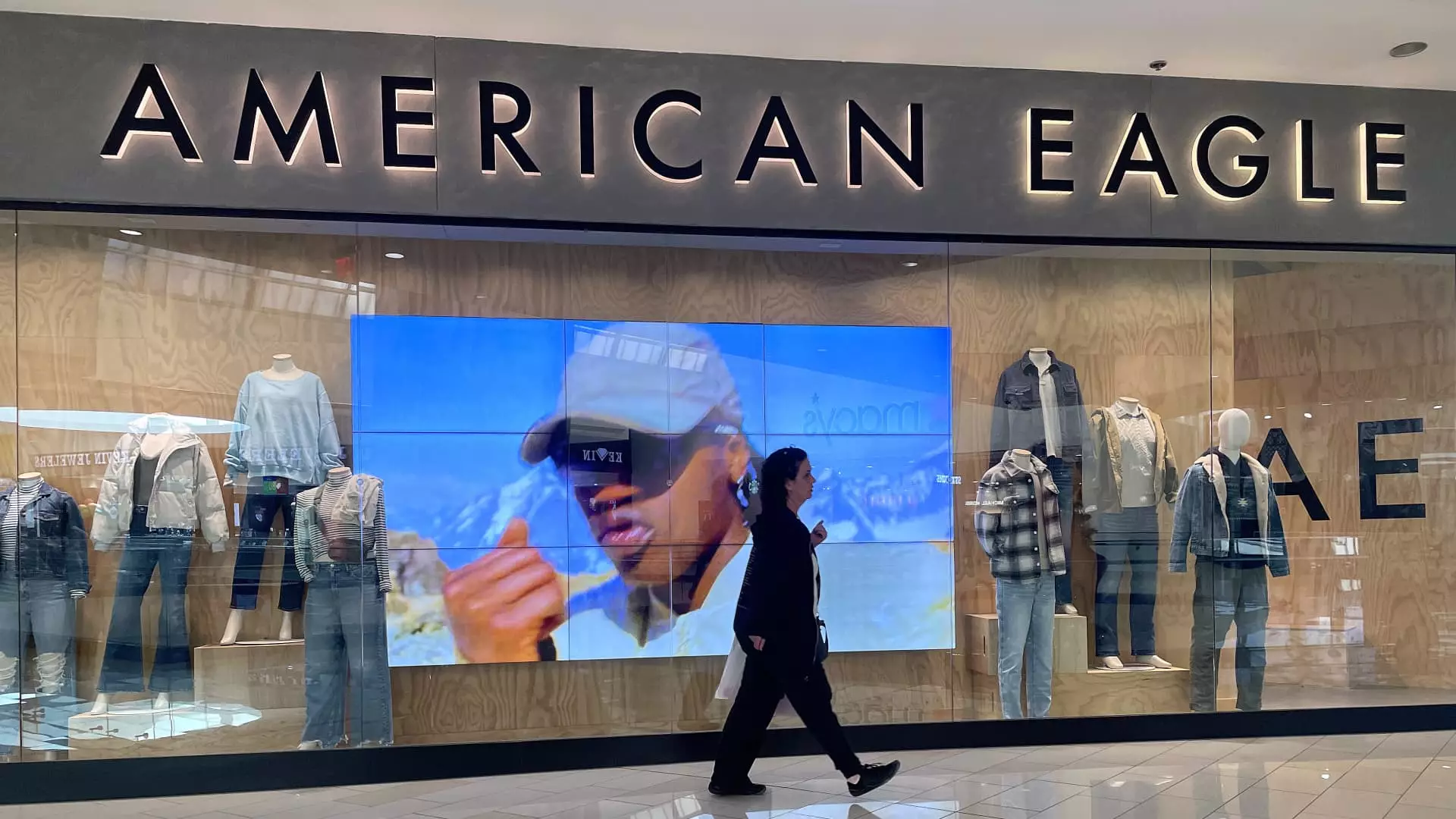In a significant legal confrontation, American Eagle Outfitters is currently suing Amazon for alleged trademark infringement, emphasizing the serious complications posed by unauthorized use of brand identifiers in the digital marketplace. At issue are claims that Amazon has improperly leveraged the branding of American Eagle’s Aerie clothing line, allegedly misguiding consumers and harming the integrity of the Aerie identity.
The Basis of the Lawsuit
American Eagle’s lawsuit, lodged in the U.S. District Court for the Southern District of New York, contends that Amazon’s actions constitute a blatant disregard for intellectual property rights. They accuse the e-commerce giant of using the Aerie and Offline by Aerie trademarks without authorization, leading to “inferior quality knock-offs” being associated with their well-established brands. This lawsuit is not merely a business disagreement; it highlights the broader challenges brands face in protecting their trademarks within vast online marketplaces.
According to American Eagle, their Aerie brand—launched in 2006—was crafted thoughtfully to construct a distinct identity, particularly in the realm of women’s fashion featuring yoga pants, loungewear, and lingerie. The company asserts it had no intention of allowing Amazon to feature these products, opting instead to cultivate a unique shopping experience for consumers seeking genuine Aerie merchandise. By doing so, they aimed to create a loyal customer base, setting their products apart from generic alternatives.
Central to American Eagle’s grievance is the claim that consumers navigating the web may find themselves misled. A search for Aerie products can bring up links to Amazon’s site, which then presents questionable replicas masquerading as official Aerie items. The lawsuit sharply critiques Amazon’s usage of misspelled versions of the Aerie brand in its advertisements, such as “Aeries,” “Arie,” or “Aries,” which American Eagle argues are deliberately crafted to confuse potential customers. Their complaint articulates the frustration felt by brands when marketplace giants utilize similar branding strategies, suggesting a structured attempt to drive traffic to Amazon’s platforms at the expense of brand integrity.
Furthermore, the complaint goes on to articulate that these actions have broader implications than mere financial damages; they challenge the very essence of brand recognition and consumer trust. When customers are led to believe they are acquiring authentic Aerie products through deceptive links, the long-standing relationship between brand and consumer becomes compromised.
The Implications for the E-Commerce Landscape
This legal fight between American Eagle and Amazon does not exist in a vacuum; it mirrors a trend of increasingly tense relationships between original brands and massive online marketplaces hosting a multitude of third-party sellers. The case illustrates how established businesses can feel threatened as these platforms grow, risking their reputations amid a sea of counterfeit goods. American Eagle’s dilemma is reminiscent of past incidents involving brands like Birkenstock and Daimler AG, both of which experienced similar issues with counterfeiting on Amazon.
As a giant in e-commerce, Amazon has long been scrutinized for its policies surrounding counterfeit products sold by third-party vendors. While the company has acknowledged the problem and taken steps to mitigate it, American Eagle’s lawsuit serves as a reminder of the ongoing battles that different industries face in protecting intellectual property.
In light of these charges, American Eagle is not just seeking financial compensation but also an injunction to prevent Amazon from continuing its alleged practices, thereby positioning itself as a defender of brand authenticity. The outcome of this litigation may not only affect American Eagle’s future dealings with the mega-retailer but could also set a precedent for how subsequent cases of trademark infringement are handled in the rapidly evolving e-commerce atmosphere.
As this legal dispute unfolds, many will watch closely—marketers, consumers, and brands alike—to discover whether justice can be achieved, providing a safeguarding mechanism for trademark rights in the digital age. Ultimately, the American Eagle versus Amazon case highlights the intersection of commerce, integrity, and consumer trust, critical elements in contemporary retail.

